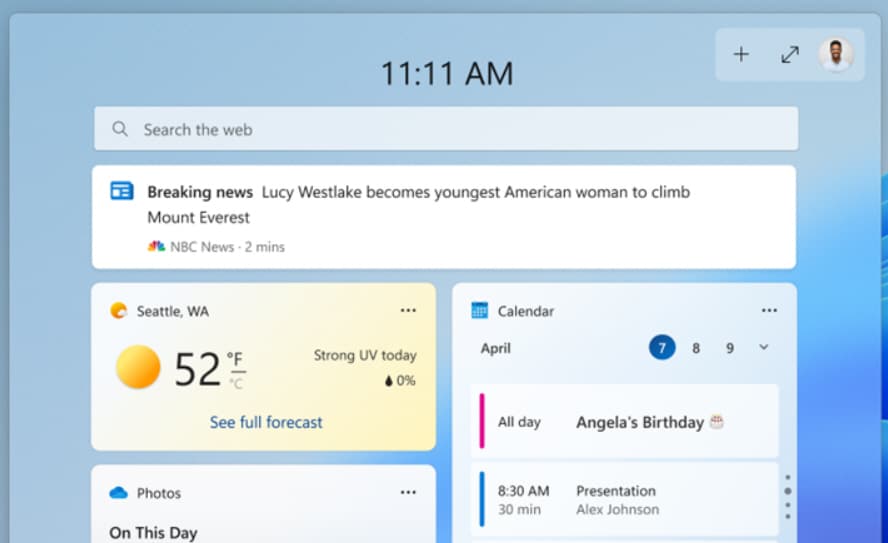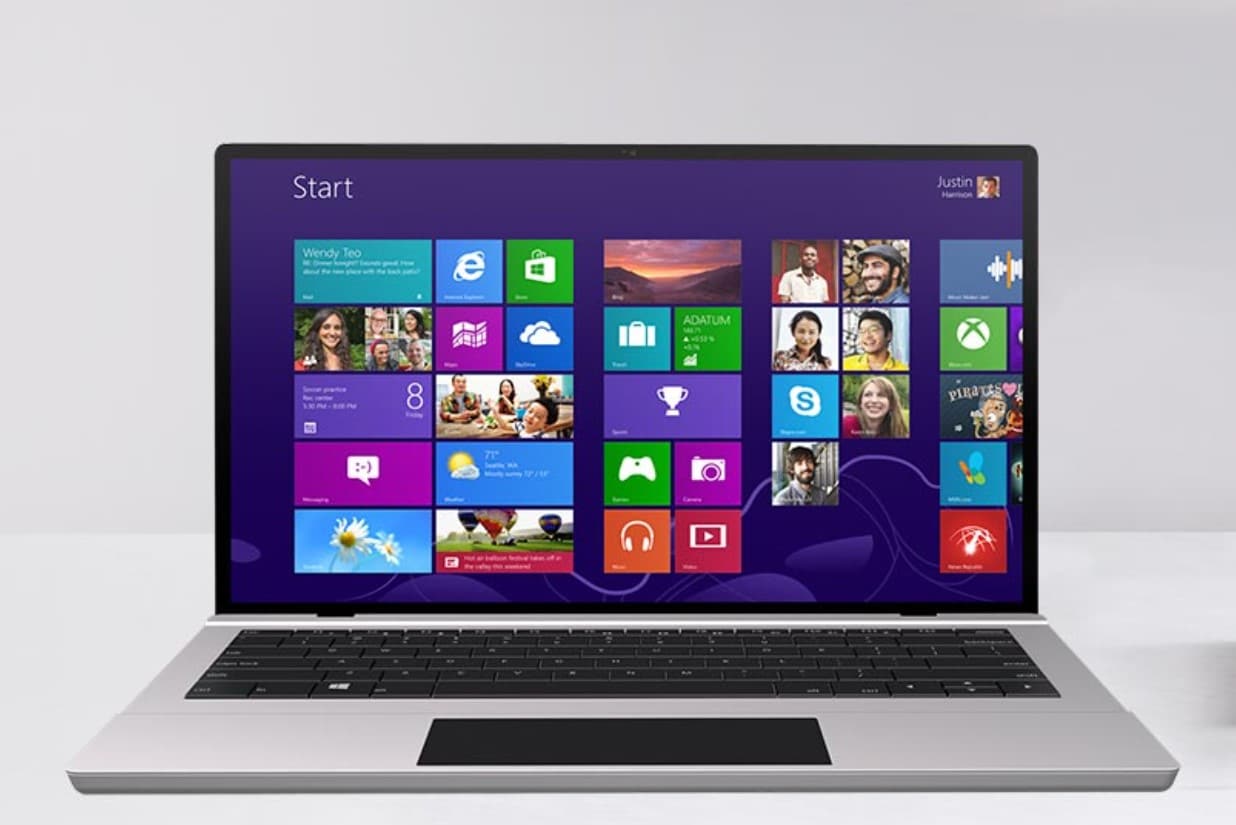
Microsoft releases PowerToys v0.60.1 update with important bug fixes for Windows 11 users
It is only a week since Microsoft released PowerToys v0.60.0, complete with various changes, fixes and additions -- many of which were focused on Windows 11. Now the company has pushed out the PowerToys v0.60.1 update with a handful of important fixes.
Microsoft describes this as a patch release, but this almost makes it seem unimportant when that is very much not the case. It addresses compatibility issues that existed with PowerRename and ImageResizer in Windows 11, as well as fixing context menu problems and crashes.

Microsoft starts rolling out updates for Camera and Media Player apps on Windows 11
Wednesday is the day of the week when Microsoft typically releases new Windows 11 builds for Insiders on the Dev Channel, but Build 25158 with notification badging for Widgets isn’t the only new release from the software giant today.
Microsoft has another treat for Windows Insiders on the Dev Channel to play with -- a Camera app refresh and a Media Player update.

Microsoft releases Windows 11 Build 25158 with notification badging for Widgets
There was no new Windows 11 build for Insiders on the Dev Channel last week, but it’s business as usual again from today.
The latest flight, Build 25158, comes with notification badges for Widgets, as well as a load of fixes and improvements.

System76 Launch Lite keyboard ditches the USB hub in favor of a smaller form factor
System76's "Launch" keyboard has been wildly popular with the Linux community thanks to its open source firmware, ability to be customized, and excellent build quality (it's made in the USA). Many people love the "split" spacebar too. Even though System76 is a Linux-focused company, its keyboard is obviously compatible with Windows and macOS as well.
The Launch keyboard uses a USB-C connector to interface with the host computer, but you can utilize either a USB-C to USB-C or USB-C to USB-A cable to connect it -- depending on what ports you have available. Launch even serves double-duty as a USB hub, allowing you to plug USB devices directly into it. And yes, the keyboard features RGB lighting too.

Identifying key risks is top cybersecurity challenge
Risk-based strategies are most successful in preventing security breaches, according to a new study from Skybox Security.
Of companies taking a risk-based approach 48 percent suffered no breaches, 50 percent were top performers in time to mitigate issues, and 46 percent top performers in response time.

Update seems to be the hardest word as enterprises struggle to maintain endpoints
The average enterprise now manages approximately 135,000 endpoint devices. But in spite of large budgets spent on endpoint protection, an average of 48 percent of devices -- or 64,800 per enterprise -- are at risk because they are no longer detected by the organization's IT department or because operating systems have become outdated.
A new study conducted by the Ponemon Institute for Adaptiva also finds 63 percent of respondents find that the lack of visibility into endpoints is the most significant barrier to achieving a strong security posture.

Size matters -- small cybersecurity teams face greater risk of attack
Companies with small security teams continue to face a number of unique challenges that place these organizations at greater risk than larger enterprises, according to a new study.
Research from Cynet, based on responses from 200 CISOs at small and medium businesses, finds 58 percent feel their risk of attack is higher compared to enterprises, despite the fact that enterprises are a bigger target.

Ten years of IPv6 and how it's changed the internet [Q&A]
The IPv6 protocol reached its 10th birthday in June this year. By using more address bits than the earlier IPv4 it opened up the way for more connected devices.
But IPv6 has other benefits too. We spoke to Akamai fellow and chief architect Erik Nygren to find out more about them and how they've changed the internet.

Microsoft warns Windows 8.1 users that 'this version of Windows is nearing the end of support'
Windows 8.1 is very much in its twilight years, and it is only a matter of months before the operating system no longer receives updates from Microsoft.
There are, of course, still plenty of people using Windows 8.1, and they need to be made aware of the fact that they are using software that will not be supported for much longer. We knew the nag screens were coming, but following the installation of this month's updates for Windows 8.1, users can expect to see a warning screen informing them: "This version of Windows is nearing the end of support".

Microsoft treats Windows 10 users to the release of KB5015807 and KB5015811 updates
We've already spoken about Microsoft releasing the KB5015814 security update for Windows 11, but Windows 10 users have not been forgotten this month. These are security updates that should be installed as soon as possible.
The KB5015811 update is available for Windows 10 version 1809, while the KB5015807 update is designed for Windows 10 versions 20H2, 21H1 and 21H2. Just as with the Windows 11 update, these both address a problem with PowerShell as well as fixing various security issues and introducing numerous improvements.

Microsoft releases KB5015814 update for Windows 11 to fix security flaws and PowerShell issues
For July's Patch Tuesday, Microsoft has released the KB5015814 update for Windows 11. This security update takes Windows 11 up to build 22000.795 and addresses a number of issues with the operating system. To accompany the release, Microsoft has also provided a handful of Windows 11 tips.
The company points out that this particular update includes the improvements that were introduced with last month's KB5014668 update. Importantly, it also addresses a PowerShell issue with blank transcript logs and lost passwords.

Download Linux Mint 21 'Vanessa' Beta now
Back in April, we learned that Linux Mint 21 would be named "Vanessa." Not much was revealed about the operating system at the time, but the developers did share a small bit of information. For instance, we now know that version 21 of Linux Mint will be based on Ubuntu 22.04, and as expected, the same three desktop environments will once again be offered -- Cinnamon, MATE, and Xfce.
Earlier this month, we also learned that the controversial systemd-oom will thankfully not be included in Linux Mint 21, while the Blueman Bluetooth manager will replace Blueberry. And now, the developers have shared something much more exciting than tidbits of information -- actual ISO files! Yes, the Beta of Linux Mint 21 "Vanessa" is now available to download.

5 million people have tried YouTube TV
I decided to cut the cord and switch to YouTube TV over four years ago, and it was one of the best decisions of my life. No longer do I have to rent clunky boxes from the cable company to watch live television. Instead, thanks to YouTube TV, all of my devices serve as makeshift televisions! I can watch live TV anywhere on all my devices -- my smartphone, tablet, laptop, Apple TV, and more.
While the price of YouTube TV has gone up over the years, I never really minded the cost increases too much. Why? Because YouTube TV has remained consistently excellent thanks to the unlimited DVR, top-notch customer service, and ever-expanding channel lineup. It is rare to be completely satisfied with a service, but with YouTube TV, I literally have no complaints.

Businesses struggle with high levels of 'dark data'
In a new survey 42 percent of respondents say at least half of their data is 'dark data' -- retained by the organization, but never used.
The study from Quest Software, in collaboration with the Enterprise Strategy Group (ESG), highlights the top challenges and innovations in data governance, data management and DataOps.

Majority of industrial IoT security projects end in failure
According to new research, 93 percent of organizations have had failed industrial Internet of Things or operational technology (IIoT/OT) security projects.
The study from Barracuda Networks surveyed 800 seniors staff responsible for IIoT/OT security and finds that 94 percent admit experiencing a security incident in the last 12 months, while 87 percent of organizations that experienced an incident were impacted for more than one day.
